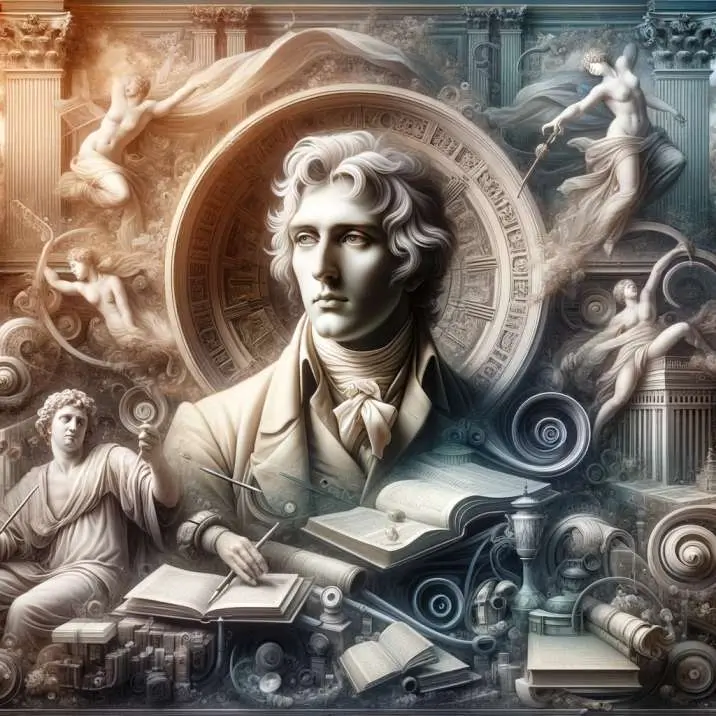Introduction
Alexander Pope, a central figure in the Neoclassical movement of the early 18th century, is not just renowned for his poetry but also for his significant contributions as a literary critic. His seminal work, “An Essay on Criticism,” first published in 1711, stands as a testament to his critical acumen and his influence on neoclassical principles in literature. His approach can be contrasted with that of other critics of his time, such as John Dryden, to understand the evolution of literary criticism.
A Dive into Neoclassical Principles
Alexander Pope’s “An Essay on Criticism” is perhaps the clearest statement of neoclassical principles in any language. This didactic poem, articulated in heroic couplets, reflects Pope’s mastery in blending satire and philosophical discourse. Inspired by Horace’s Ars Poetica, Pope’s work borrows heavily from the writers of the Augustan Age, setting out a framework of poetic rules and standards that echo the classical ethos of balance, harmony, and restraint.
Literary Criticism of Alexander Pope
One of the notable aspects of Pope’s criticism is his candid commentary on the state of literary criticism of his time. In his essay, Pope is critical of what he terms as ‘bookful blockheads, ignorantly read,’ referring to critics whose interpretations are limited by their personal biases and lack of discerning judgment. This critique not only showcases Pope’s disdain for superficial reading but also underscores his advocacy for informed and unbiased criticism, a view shared by other contemporaries like Sir Philip Sidney.
The Role of the Heroic Couplet
As an adept of the heroic couplet, Pope’s influence extends beyond content to form. He perfected this rhymed couplet form, a legacy of his idol John Dryden, and utilized it effectively in both satirical and philosophical contexts. The use of this form in “An Essay on Criticism” demonstrates how Pope could convey complex critical ideas with clarity and poetic elegance.
Setting Standards in Poetry and Criticism
Pope’s essay is significant for its attempt to lay down rules of good taste not just in criticism, but in poetry itself. This indicates Pope’s broader view of criticism as an integral part of literary creation, not merely an afterthought. He saw criticism as a guiding force in shaping literary standards and tastes during the Augustan age.
Alexander Pope’s role as a literary critic is pivotal in understanding the landscape of 18th-century literature. His critical works, particularly “An Essay on Criticism,” provide invaluable insights into the standards and expectations of his era. Pope’s influence remains palpable, reminding us of the timeless nature of good criticism and its role in shaping literature.








